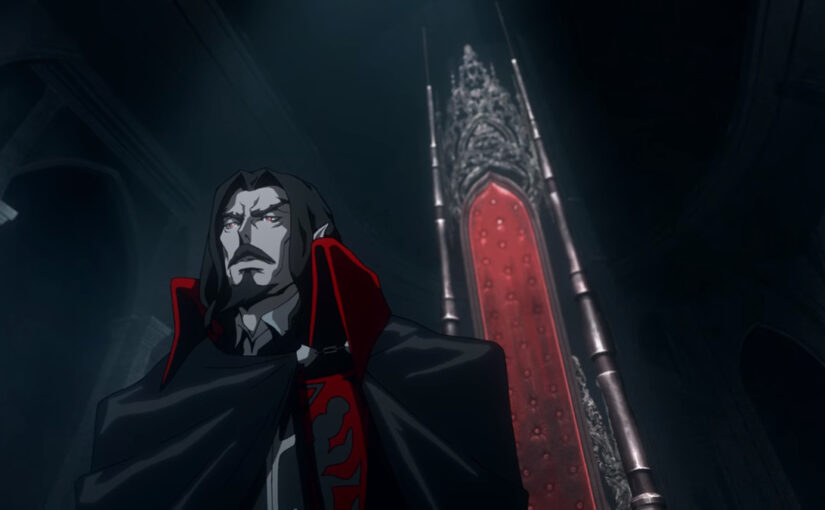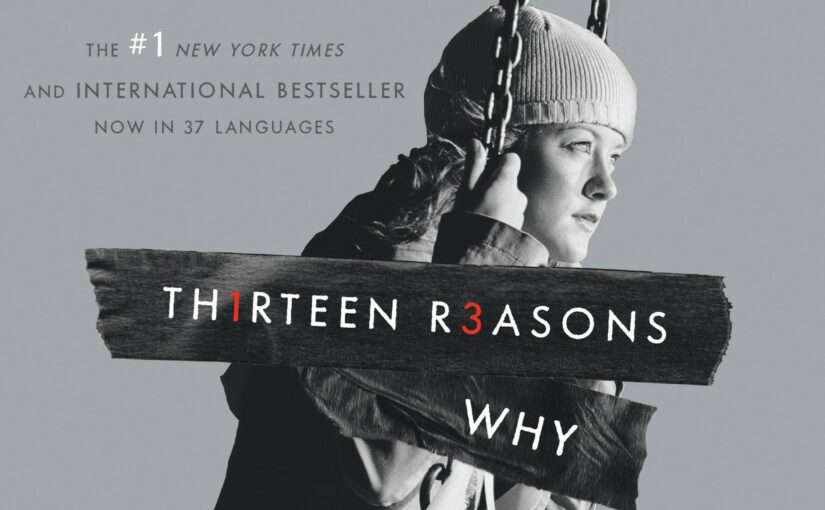Castlevania is a great example of Netflix doing anime right. Some people might split hairs over whether this is actually “anime” or just a cartoon. Despite being inspired by anime, Castlevania is not produced in Japan but instead by an American studio. Additionally, rather than being based on a mang, Castlevania was based on a Japanese video game also called Castlevania. Regardless, the animation quality is amazing, and the action scenes are plentiful and very well choreographed. The characters were well developed, and there was just enough humor to lighten the mood when needed. Not much to say on the plot, but it does breathe a breath of fresh air into the vampire genre.
Tag: netflix
Thirteen Reasons Why
Thirteen Reasons Why was initially published as a novel by Jay Asher in 2007 and then later turned into a Netflix original series in 2017. This is a particularly hard book to review due to the outrage and support it has sparked since its release.
With that said, I feel like it is worth taking a deeper look into. The Netflix series had amazing cinematography and was overall produced well. The novel told the story via two simultaneous narratives, with Hanna on the tapes and Clay Jenson providing live feedback. This was an interesting way to tell a story like this since most dual narratives in print media are separated by chapters instead of being interwoven. The novel only spanned the night that Clay listened to the tapes, where the Netflix series dragged out the time that Clay listened to the tapes and had him interact with the other people on the tapes. This change was obviously done to make the show more compatible with the format.
Why the hate for Thirteen Reasons Why? This all boils down to whether the series did a good job at portraying suicide, rape, and mental illness. After a first viewing of the show, and reading the book I would have to say that it did an “ok” job at portraying these subjects. It invites a discussion around suicide and what we can do to help people dealing with mental health. Although it uses one-dimensional tropes found in your typical angsty American high school drama, it gets the message across.
However, doing an “ok” job isn’t good enough because portraying these things in the wrong way can encourage suicide among people at risk — which happens to be the target demographic. According to experts, you should not sensationalize, romanticize or portray suicides as heroic. Does Thirteen Reasons Why do any of these things? Well… the Netflix documentary definitely does a lot more sensationalizing than the original novel did, often using gory imagery of Hanna’s death. The original novel only briefly mentioned how the suicide happened, and it didn’t go much into the details.
This all isn’t to say that media shouldn’t discuss suicide — experts say that it is important to have more stories about both suicide and suicide survivors.
There should be MORE stories about suicide survivors and MORE stories about suicide, but the emphasis should ALWAYS be on suicide prevention, awareness, and support.
Suicide.org
In the novel, it was explicit that there were people who were willing to help Hanna, but she pushed them away– like Clay. Moreover, other people failed to see the warning signs of her suicide–Tony. This all emphasizes the importance of awareness, support, and prevention. It would be acceptable to have peers who are ignorant about suicide, but it sends the wrong message when Mr. Porter, who was supposed to be the trained expert, could not give Hanna the help that she needed after she reached out to him.
The novel finished with Clay ignoring class to run after Skye to talk with her since she has been showing suicidal tendencies. Great way to end since it focused on what we should be doing to be aware of mental health and how we can support others. The Netflix adaptation decided to thicken the plot and add a second season that focused on bringing justice to Bryce: the serial rapist. Rather than focus on suicide prevention, the Netflix series turned Hanna’s death into a heroic act that was used to bring down Bryce.
Most of the hate that Thirteen Reasons Why has received is solely due to the glamorization and messages introduced in the Netflix adaptation. This is a shame because the Novel has real potential to connect with teenagers and send a good message.
Anyone who is suicidal may receive immediate help by logging onto Suicide.org or by calling 1-800-SUICIDE. Suicide is preventable, and if you are feeling suicidal, you must get help. So please visit Suicide.org or call 1-800-SUICIDE immediately.

